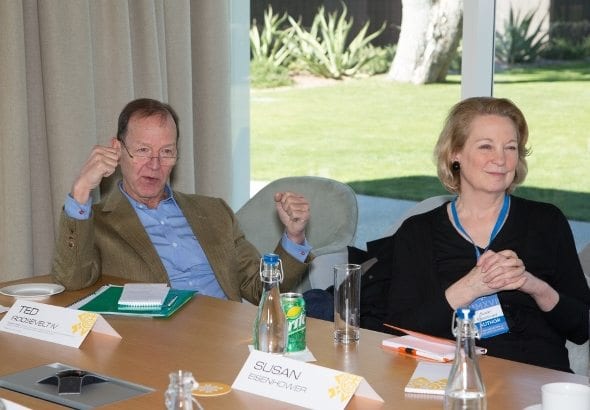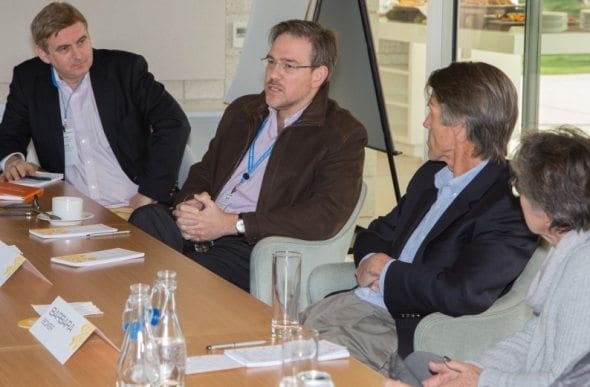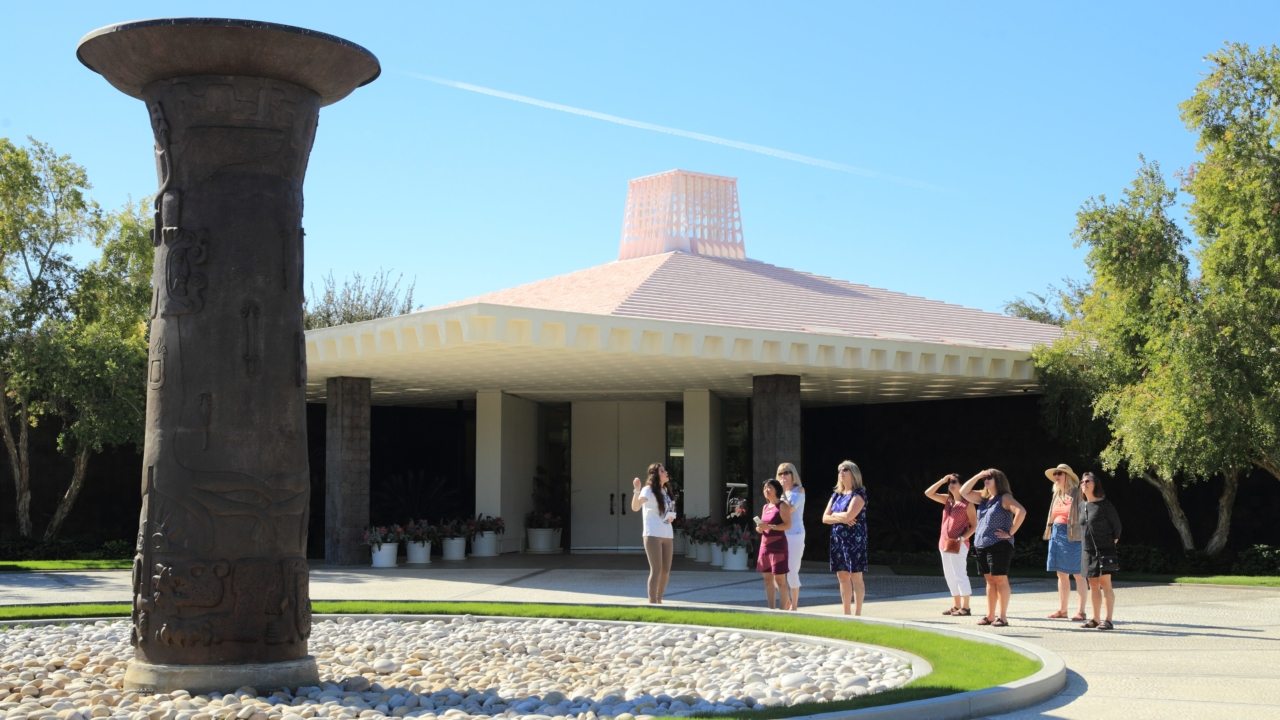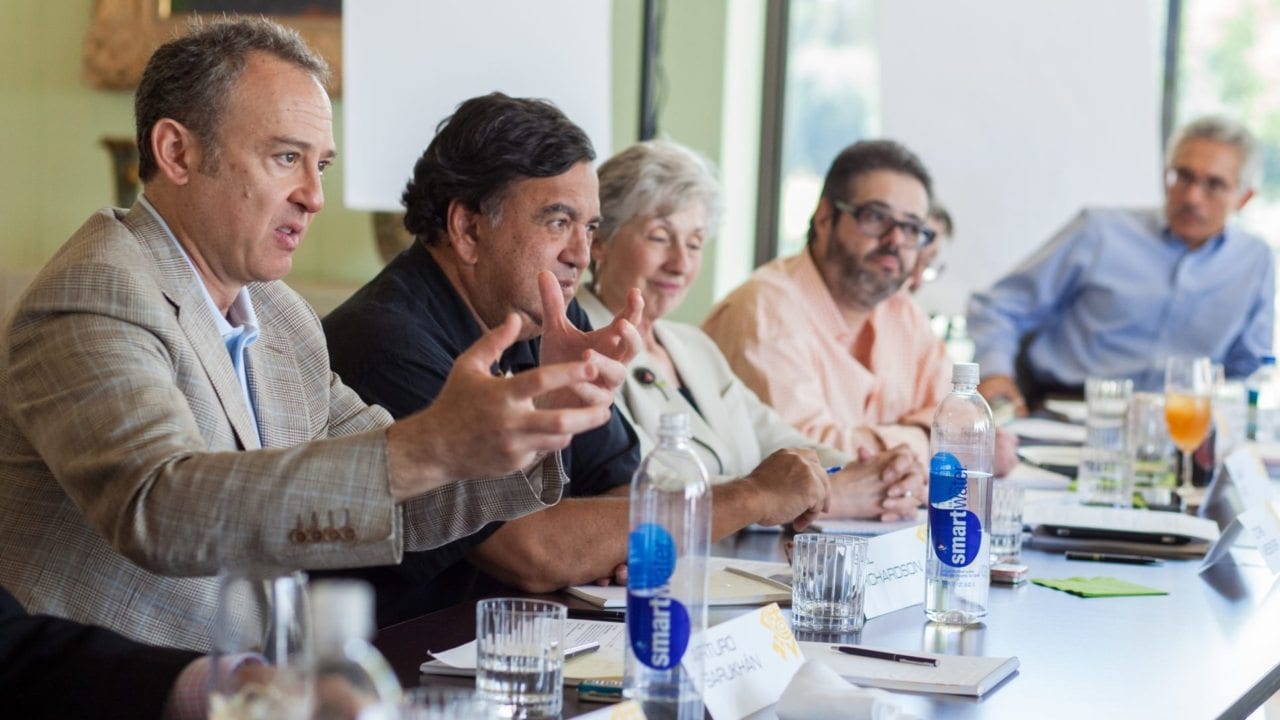Biographers talk about writing history
Some of today’s most lauded biographers and journalists convened at Sunnylands during the Rancho Mirage Writers Festival in January to talk about the challenges of writing history.
Del Quentin Wilber, author of Rawhide Down, said the gathering of notable writers made him “feel like I’m at an all-star game.” Others seated at the Sunnylands conference table were former U.S. Sen. Barbara Boxer (D-Calif.); Garth Hallberg, whose historical novel, City on Fire, covered the 1970s; and two offspring of former presidents. Both Theodore Roosevelt IV, an impassioned environmentalist, and Susan Eisenhower, an expert on relations between the Russian Federation and the United States, contributed to biographies of their famous forbearers, Presidents Theodore Roosevelt and Dwight D. Eisenhower.
Former Sunnylands President Geoffrey Cowan and Sunnylands Trustee Elizabeth Sorensen convened the roundtable and began the discussion with two simple questions: How do you choose the subject you write about? What are you working on currently?

Theodore Roosevelt, IV and Susan Eisenhower
The first to answer was Tom Holland, a British author who has written extensively on classical and medieval history. “I had a childhood fascination with history,” he explained, especially “the color and glamour of antiquity.”
Senator Boxer, who was only days from her retirement from the Senate, recounted two stories that figure prominently in her new book, The Art of Tough: Fearlessly Facing Politics and Life. First she told of her experience during 9/11. When ordered to evacuate the Capitol, she decided not to take off her shoes, vowing that at just barely five-feet tall, no terrorist was going to get her out of her high heels. Senator John Lewis was the focus of her second story, calling the civil rights legend “a true hero.”
Douglas Brinkley, a CNN presidential historian and a professor, is currently working on an article about President John F. Kennedy for Vanity Fair that will mark the 100th anniversary of Kennedy’s birth and another for The New York Times on the environment. Involved with President Barack Obama’s presidential library board, Brinkley said the Obamas do not want a traditional “library,” but a living place that includes a community center and recreational facility that will enliven its Chicago neighborhood. Brinkley also noted that the former president intends to spend some time and energy on increasing voter participation in an effort to shore up the electoral system.


Andrew Jackson O’Shaughnessy, Bret Stephens, H.W. Brands, and former Senator Barbara Boxer were among the attendees.
Seated between Brinkley and presidential biographer Evan Thomas, Sunnylands Trustee Elizabeth Sorensen noted that although not a writer, she is currently fascinated with systems and as a new mother is seeking to “teach her children empathy and how to fight.”
Historian Thomas jumped in, saying former Supreme Court Justice Sandra Day O’Connor, about whom he is writing an authorized biography, is also interested in systems and is, according to Thomas, “obsessed” with the American system of civics and the importance of civic education.
Pulitzer Prize-winning columnist Bret Stephens, deputy editorial page editor of the Wall Street Journal, brought the conversation back to its roots when he commented, “books are incredibly important,” they teach us history and how to “endure.”



